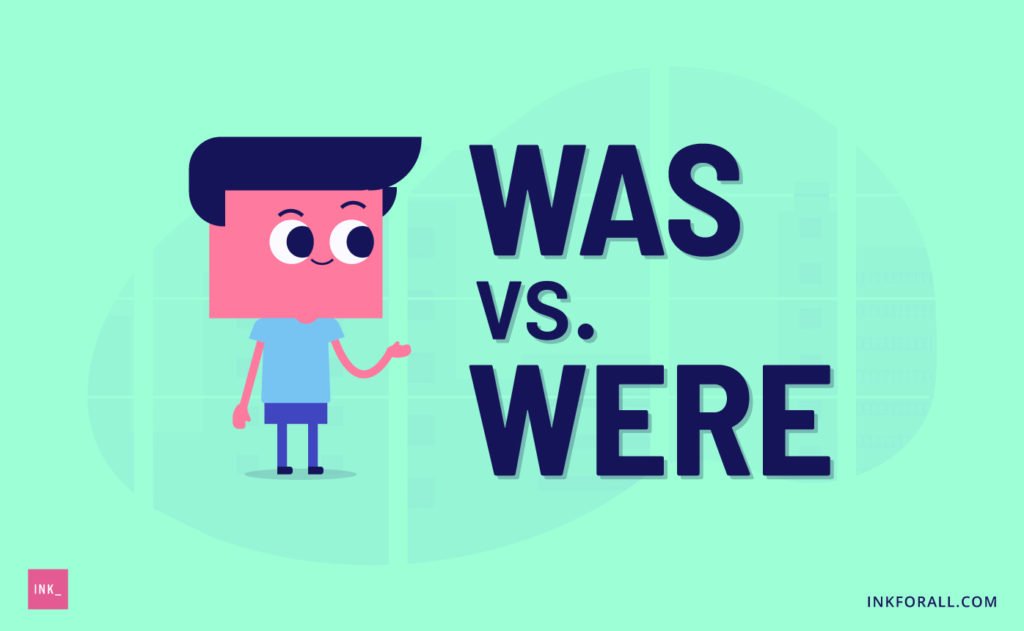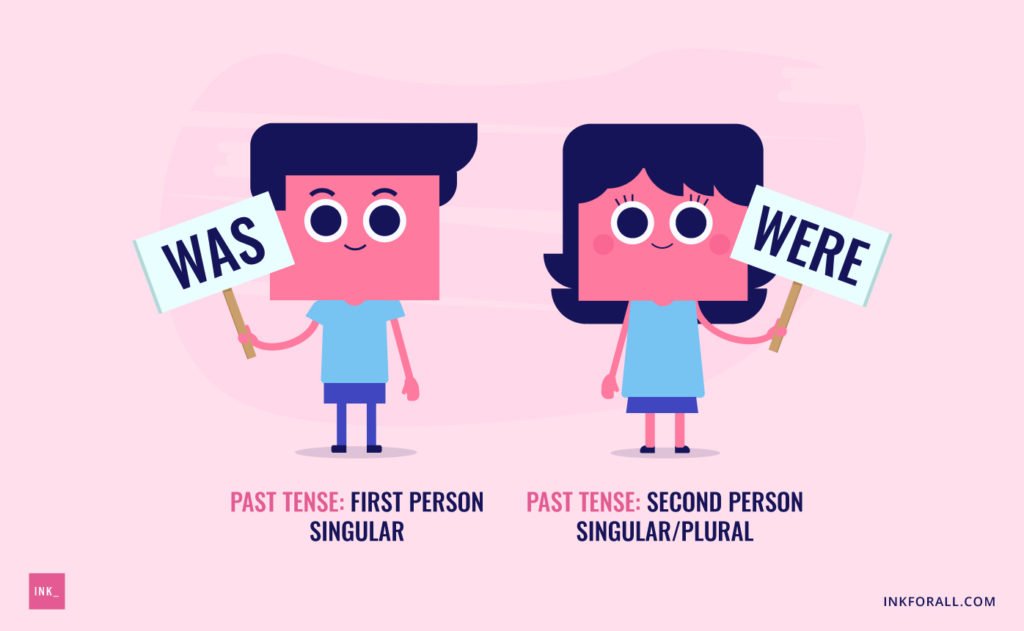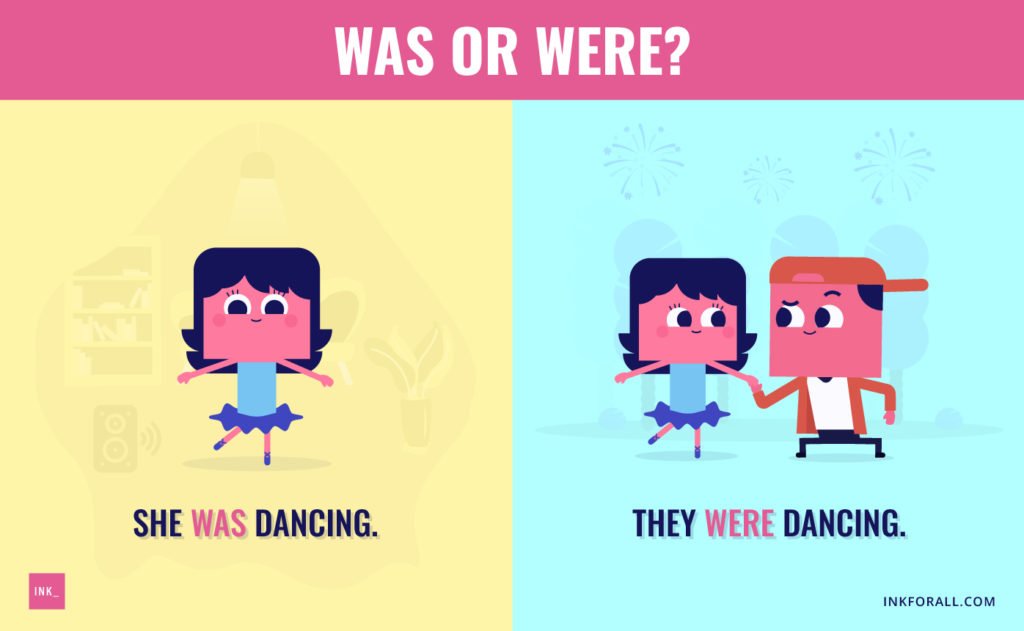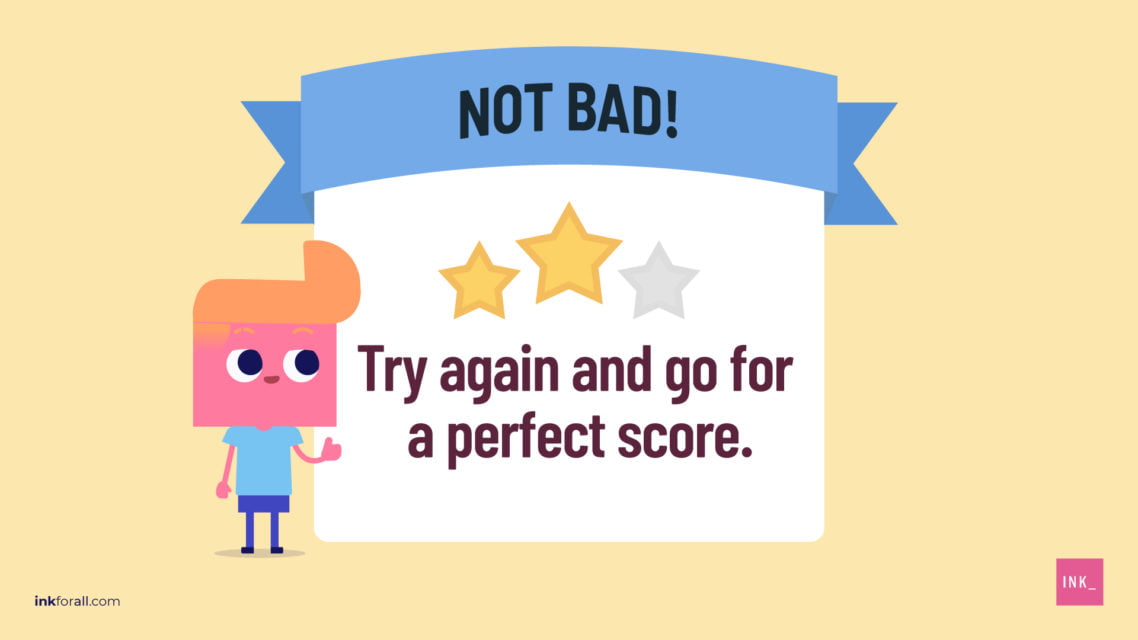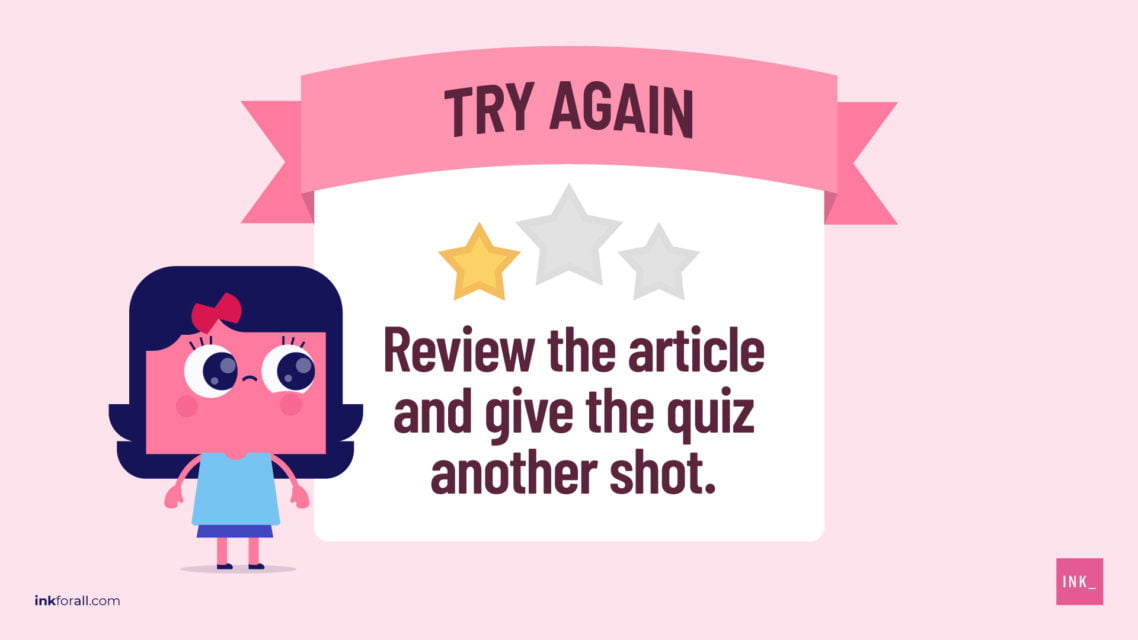What is the difference between was vs were?
The words “was” and “were” are past tense forms of the verb “to be,” a word English speakers use more often than they realize. Whenever we use the terms are, is, am, was, were, be being, or been–– we are using the verb ‘be’ (to be).
The verb ‘to be’ contains several forms because it’s an auxiliary verb, which means it assists or modifies another verb. Similar auxiliary verbs include do (did, does, doing) or have (had, has, having), and it’s common to see these verbs paired with ‘be,’ as well.
‘To be’ is also an irregular verb, so it doesn’t function the way other verbs do in the English Language. For instance, regular verbs contain past tense forms with the letter “d” or “-ed” at the end (e.g., answered, forced, hunted, etc.).
In the case of ‘to be,’ the irregular verb is broken down in the following eight tenses:
- Present tense: am, are, is.
- Simple past tense: was, were.
- Present continuous: am being, are being, is being.
- Present perfect: have been, has been.
- Future: will be.
- Future perfect: will have been.
- Past continuous: was being, were being, was being.
- Past perfect: had been.
What does ‘to be’ mean?
English speakers use the verb ‘to be’ to describe a variety of actions, but the overall meaning is to ‘exist’ or ‘occur’ as something in time and space. Let’s take a look at five general ways to define and write ‘to be’ in a sentence:
To be equal to something, the same, or to symbolize something. For example,
“Life is good.”
“If y is 20, let x be 16.”
To belong to a class or a category of something.
“That building is a local high school.”
“Learning is your job.”
“You are a student.”
To exist in reality, to live, or remain undisturbed.
“I was born.”
“I am alive.”
“Let me be.”
To occur or exist in a specific location.
“The coffee is on the table.”
“He is at the park.”
“They were in the car.”
“The event was on Monday.”
To say (informal).
“They were like, ‘you can’t do that.’”
“He was like, ‘no way!’”
Synonyms
Breathe, dwell, exist, happen, inhabit, live, occur, remain, reside, sit, stand, stay, subsist.
Antonyms
Cease, depart, die, discontinue, expire, halt, pass, perish, stop, succumb.
How to use was vs. were in a sentence?
To write was and were in a sentence correctly, we must use them for the simple past tense and pay attention to narrative mood, perspective, and noun count.
The simple past tense for was vs. were
The simple past tense is the only past tense form we use for were and was because “was” and “were” are the preterite forms of the verb ‘to be.’ There are two other past-tense verb forms, the present perfect and past perfect tenses, but they incorporate the verb’s past participle “been,” instead. For example,
Present perfect: have been, has been.
Past perfect: had been.
We use the simple past tense to describe past events in a historical manner. Sentences that use the simple past tense contain an adverb or adverb phrase that pertains to time (e.g., yesterday, on Monday, last month, etc.).
For the simple past tense, we use the verbs was and were in the following ways:
- I was …
- You were …
- She/he/it was …
- We were …
- They were …
The simple past tense also contains two forms in itself: the progressive tense and the continuous form. The progressive verb tense describes longer, ongoing actions that progress in some fashion before a shorter, interruptive activity. The continuous tense indicates how an action proceeded without interruption or is ongoing.
All progressive tenses use “-ing” at the end of a verb. In fact, this verb tense typically uses the verb ‘to be’ in front of another verb’s infinitive form with “-ing.” For example,
“They were sleeping.”
“He was talking.”
For the past continuous or progressive forms, we use the verbs was or were in the following manner:
- I was being …
- You were being …
- She/he/it was being …
- We were being …
- They were being …
Narrative perspectives: was vs. were
Do you recall how we used the past tense forms of “were” and “was” differently for I, she, we, or they pronouns? That’s because the verbs are affected by the narrative (i.e., the perspective of the storyteller).
English narrative perspectives:
- The first person (I, we): “I ran a mile.”
- The second person (you): “Did you want to talk about it?”
- The third person (She, he, it, they): “She doesn’t like emojis.”
The use of “was” and “were” depends on the narrative’s point of view. The first person perspective (I, we) uses “was,” while the second person perspective (you) uses “were.” The third-person perspective (she, he, it, they) only uses “were.”
Narrative mood: was vs. were
The verbs “were” and “was” are additionally affected by the narrative’s mood (i.e., indicative vs. subjunctive). The indicative mood conveys ‘what is’ or ‘is not,’ but the subjunctive mood expresses a hypothetical situation or fantasized reality.
Subjunctive phrases often include “if I were …” or “if I was …,” but this mood has different grammar rules than the indicative mood “I was …” or “you were …” For the subjunctive mood, avoid using “was” and only use “were” instead.
Subjunctive mood examples for was vs. were
Correct: “If I were a rich man.”
Incorrect: “If I was a rich man.”
Correct: “I wish I were taller.”
Incorrect: “I wish I was taller.”
Indicative mood examples for was vs. were
Correct: “He was at the store.”
Incorrect: “He were at the store.”
Correct: “They were great last night.”
Incorrect: “They was great last night.”
Correct: “I was like, ‘no way!”
Incorrect: “I were like, ‘no way!”
Singular and plural nouns: was vs. were
Verb forms also depend on the number of nouns that they act upon. In other words, how many nouns involve the act of “being”? If there is one noun, the verb is singular, but if there are more than two nouns, the verb is plural.
“Was” is a singular verb form and “were” is a plural verb form. This is why we exercise narrative rules for each verb form. “They” or “we” implies multiple nouns (were), while “I” or “you” conveys one noun (was).
Cheat sheet for remembering was vs. were
We know it seems as though there are a million rules for using was vs. were, but learning how to write the verb correctly becomes easier with practice. Using the grammar rules above, we can summarize the verb’s grammatical rules based on the indicative vs. subjunctive mood tenses:
Was vs. were for the indicative mood
Only use the verb was with the indicative mood and for the following verb forms:
- The first person singular past tense (I was).
- The third-person singular past tense (he was, she was, it was).
Use the verb were for:
- The second person singular past tense (you were).
- The second person plural past tense (I were, we were).
- The third person plural past tense (they were).
Simple past tense forms of was and were for the indicative mood:
- I/she/he/it was ….
- I/she/he/it was being ….
- You/we/they were …
- You/we/they were being …
Was vs. were for the subjunctive mood
For the subjunctive mood, use the verb were for:
- The first person singular subjunctive tense (I were).
- The second person singular subjunctive tense (you were).
- The third-person singular subjunctive tense (he were, she were, it were).
- The first person plural subjunctive tense (I were, we were).
- The second person plural subjunctive tense (you were).
- The third person plural subjunctive tense (they were).
Simple past tense forms of was and were for the subjunctive mood:
- If (pronoun) were …
- (Pronoun) wish (pronoun) were … (e.g., “I wish we were …”)
FAQ: Related to were vs was
If I use were or was, am I writing in passive voice?
The verbs ‘was’ or ‘were’ do not indicate passive voice by themselves, but we construct passive sentences by pairing a conjugation of ‘to be’ with a past participle of a different verb. For example,
‘To be’ + the past participle of transitive verbs:
“He was found.”
“The child is being found.”
‘To be’ + the present participle in progressive tenses:
“She is sleeping.”
“I have been sleeping.”
‘To be’ + the past participle of certain intransitive verbs (for archaic perfect tenses):
“He is risen.”
‘To be’ + the infinitive and ‘to’ to convey a future arrangement or obligation:
“I am to tend to the garden.”
“She was to become a great gardener.”
It’s worth noting that while most people believe the passive voice is a grammatical error, the passive voice isn’t technically incorrect. Most grammarians simply prefer the active voice because it emphasizes the sentence subject instead of the object that receives a verb.
What is the present perfect tense?
The present perfect tense connects the present to the past with an action that began in the past at an unspecified time. We can identify the present perfect tense through the use of “has been” or “have been.”
What is the past perfect tense?
The past perfect tense describes completed actions that occurred before a different, past event. We can identify past perfect tense through the use of “had been.”
Are verbs like was or were homophones?
A homophone is a set of words that sound alike but have different meanings and spellings. The verbs ‘was’ and ‘were’ are not homophones because we pronounce them differently, they are spelled separately, and they share the same verb and meaning.
Test Yourself!
Think you’re ready to use the verb ‘be’ like a pro? Challenge your grammar know-how with the following multiple-choice questions for was vs. were.
- Which verb tense is not a form of the verb ‘to be’?
a. Are
b. Was
c. Have
d. Being - True or false: the verb ‘was’ is the correct choice for the subjunctive mood?
a. True
b. False - True or false: The indicative mood changes the word choice for was vs. were?
a. True
b. False - Singular nouns correspond to which verb form of ‘to be’?
a. Was
b. Were
c. Been
d. Being - Past tenses of the verb ‘to be’ do not include ________?
a. Were
b. Was
c. Was being
d. None of the above
Answers
- D
- B
- A
- A
- D
Sources
- “Be.” Lexico, Oxford University Press, 2020.
- “Be.” The Merriam-Webster.com Dictionary, Merriam-Webster Inc., 2020.
- “Grammar Handbook: Regular and Irregular Verbs.” Center for Writing Studies, University of Illinois at Urbana-Champaign, 2013.
- “Passive Voice.” USC Rossier, University of Southern California, n.d.
- “To be.” Reverso Conjugation, Reverso-Softissimo, 2020.
- “What’s the Difference between progressive and continuous tenses?” Insights To English, TESOL International Association, 7 Aug 2018.
Глаголы was и were – одни из самых частых слов в английском языке. Избежать их употребления практически невозможно. Они выступают не только как самостоятельные глаголы, но и участвуют в образовании других конструкций.
Понимать, когда употребляется was, а когда were, необходимо каждому, кто учит английский язык. Правила их использования несложные, но они могут зависеть от роли глагола в предложении.
Глаголы was и were участвуют в разных конструкциях и выступают в разном качестве. Случаи их употребления можно разделить на 5 типов: как глагол «быть», в согласовании времен, для образования Past Continuous, в пассивных конструкциях, в условных предложениях с if.
1. Глагол «быть»
Was и were в английском языке представляют собой две формы глагола to be (быть) в прошедшего времени. Различаются они по лицам и числам: в форме was глагол используется в единственном числе, кроме второго лица (местоимения you), were – во множественном числе и в единственном числе второго лица.
Правило was / were по таблице спряжения глагола to be в прошедшем времени:
Случаи использования глаголов в значении «быть» очень похожи с предложениями в русском языке. Для was / were употребление характерно при описании местонахождения, качеств, рода деятельности и других случаев:
The key was in the car – Ключ был в машине
George was tall and thin – Джордж был высокий и худой
I was a dancer – Я был танцором
Her name was Margaret – Ее звали Маргарет
В отрицании с частицей not глаголы могут принимать сокращенную форму wasn’t, weren’t. Частица not в таком случае примыкает к глаголу и теряет свой гласный «о»:
The key wasn’t in the car – Ключ не был в машине
They weren’t at home yesterday – Вчера они не были дома
Для глаголов was или were правило образования вопросительного предложения не требует использования дополнительного глагола to do (did в прошедшем времени).
Чтобы сделать из утвердительного предложения вопрос, достаточно переместить was / were на первое место во фразе. Тогда как для всех других глаголов нужно прибегать к помощи to do и уже его ставить на первое место. Сравним следующие примеры:
He was in the library (Он был в библиотеке) – Was he in the library? (Он был в библиотеке?)
He went to the library (Он ушел в библиотеку) – Did he go to the library? (Он ушел в библиотеку?)
Использовать оба глагола для образования вопросительного предложения нельзя. Такое предложение как «Did he be in the library?» будет грамматически неправильным.
Глагол to be активно используется в разнообразных конструкциях. Например, во фразах there was / there were. Такие конструкции указывают на факт существования предметов. Правило, когда употребляется was / were, здесь зависит только от числа объектов, о которых говорится в предложении:
There were six apples in the box – В коробке было 6 яблок
There was a very old house at the end of the street – В конце улицы был очень старый дом
Существуют также различные устойчивые выражения с глаголом «to be». Активно этот глагол используется в конструкциях, которые описывают состояние, характеристику или определенное качество. К таким фразам относятся to be interested in (интересоваться чем-то), to be in a hurry (торопиться), to be fond of (увлекаться чем-то), to be good at (хорошо разбираться, уметь), to be mistaken (заблуждаться) и многие другие. В предложениях с этими конструкциями могут употребляться различные лица глагола, поэтому здесь для was were используются те же правила из таблицы спряжения:
Michel was incredibly fond of dancing – Майкл был без ума от танцев
I thought you were in a hurry — Я думал, ты торопишься
I could rely on them because they were good at that job — Я мог на них положиться, потому что они хорошо выполняли свою работу
2. Согласование времен
Нельзя забывать и о правилах согласования времен в английском языке: в косвенной речи время придаточного предложения зависит от главного. Если главная часть говорится в прошедшем времени, то и в придаточном форма глагола to be изменяется на was / were. В русском языке нет согласования времен, поэтому для глагола не требуется форма прошедшего времени.
Betty said that you were thinking about buying a new house — Бетти сказала, что ты подумываешь о покупке нового дома
3. Вспомогательный глагол для времени Past Continuous
Другая роль глаголов was и were – служить средством для образования Past Continuous. Все времена Continuous образуются через глагол «to be» и причастие с окончанием ing. Вспомогательный глагол здесь не несет самостоятельного значения, а только принимает на себя грамматическую функцию, чтобы образовать нужную форму. В прошедшем времени глагол to be выглядит как was / were, поэтому формула образования Past Continuous имеет вид was/were + V-ing.
В различении между собой для were или was правило остается таким же, как оно описано выше, и зависит от числа и лица по таблице спряжения глагола to be.
I was packing my suitcases at this time – В это время я паковал чемоданы
They were walking together in the park – Они прогуливались вместе по парку
You were studying in your room when Mr. Grey arrived – Ты учился в своей комнате, когда приехал мистер Грей
4. Пассивные конструкции (образование страдательного залога)
Употребление was / were в английском языке характерно для создания пассивных конструкций в прошедшем времени. Образуются такие фразы через глагол to be и причастие прошедшего времени, которым выступает смысловой глагол. Для прошедшего времени формула образования пассива строится как was/were + V3.
Пассив (или страдательный залог) выводится из предложения в активной форме и используется в таких ситуациях, когда роль подлежащего исходного предложения не так важна. В активном залоге подлежащее описывает деятеля ситуации и выступает самым главным членом предложения. В страдательном залоге новым подлежащим оказывается тот объект, который испытывает действие на себе.
The problem was solved — Проблема была решена
Children were separated from their parents — Детей разлучили с родителями
Из примеров видно, что лицо и число этого нового подлежащего определяют, используем ли мы was или were. Неважно, из какой фразы получено пассивное предложение: форма глагола определяется подлежащим в данной фразе.
После преобразования предложения в пассив исходное подлежащее может полностью исчезать из предложения или выступать в менее значимой позиции (например, в функции дополнения). Проиллюстрируем оба случая примерами:
He wrote a letter (Он написал письмо) – The letter was written (Письмо было написано): подлежащее he (он) из первого предложения полностью исчезает во втором.
The President approved this law two months ago (Президент одобрил этот закон два месяца назад) – This law was approved by the President two months ago (Этот закон был одобрен президентом два месяца назад): подлежащее первого предложения the President (Президент) не исчезает, но перестает быть главным членом и из подлежащего превращается в дополнение.
Если активный участник действия остается в предложении, он может обозначаться через предлог by. В предложении может также фигурировать предлог with: он относится к неодушевленным предметам и обозначает инструмент, с помощью которого действие было выполнено.
This house was chosen by my mother — Этот дом выбран моей мамой
The bread was cut with a knife — Хлеб был порезан ножом
5. Условные предложения
Условные предложения делятся на различные типы. Второй тип, в котором появляется нетипичное употребление глагола were, строится по схеме if + Past + should/would + Vinf.
Такие условные предложения описывают нереальную ситуацию, которая, скорее всего, никогда не осуществится. Употребляя эту конструкцию, говорящий высказывает явные сомнения, что ситуация возможна в реальности.
В условных предложениях для глаголов was и were правила отличаются от всех рассмотренных раньше примеров: во всех числах и лицах употребляется только форма were. Глагол were появляется в придаточной части предложения, если в конструкции должен быть использован смысловой глагол to be. Was в английском языке в таком типе условной конструкции не используется.
If I were a king I wouldn’t need such a pompous palace — Если бы я был королем, мне бы не понадобился такой помпезный дворец.
Особенность условных конструкций с if заключается еще и в том, что глагол were в них появляется, когда указанная ситуация относится к плану настоящего или будущего времени, а не прошедшего.
If we were in Paris now I would show you the Eiffel Tower — Если бы мы сейчас были в Париже, я бы показал тебе Эйфелеву башню.
Was is a past tense indicative form of be, meaning “to exist or live,” and is used in the first person singular (I) and the third person singular (he/she/it). You use the past indicative when you’re talking about reality and known facts.
Correspondingly, What are the 12 types of tense? What are the 12 types of tenses?
- Present Simple Tense.
- Present Continuous Tense.
- Present Perfect Tense.
- Present Perfect Continuous Tense.
- Past Simple Tense.
- Past Continuous Tense.
- Past Perfect Tense.
- Past Perfect Continuous Tense.
What are the 4 aspects of verbs? Aspect refers to the state of action of a verb. There are four types of verb aspects: simple, progressive, perfect and perfect progressive.
Furthermore, How do you use verbs?
As the heart of sentences and clauses, verbs show what the subject is doing or feeling, even if they’re just existing. Verbs are also the only type of word that’s absolutely necessary to make a sentence. Not even nouns, which represent things, need to be in every sentence.
What are the 6 verb tenses?
The six tenses are:
- Simply present.
- Present perfect.
- Single past.
- Fits perfectly.
- Future.
- Future perfect.
How many types of verb are there? Verbs are words that express action or state of being. There are three types of verbs: action verbs, linking verbs, and helping verbs. Action verbs are words that express action (give, eat, walk, etc.) or possession (have, own, etc.). Action verbs can be either transitive or intransitive.
What are the 4 types of tenses? The present, past and future tenses are divided into four aspects: the simple, progressive, perfect and perfect progressive. There are 12 major verb tenses that English learners should know.
What are the 5 principal parts of a verb? English verbs have 5 principal parts with which other forms are derived using verb auxiliaries: base/stem, simple past/present, past participle, present participle and the infinitive (the “name” of the verb).
What are helping verbs?
Helping verbs are verbs that are used in a verb phrase (meaning, used with a second verb) to show tense, or form a question or a negative. Helping verbs are used to show the perfect verb tenses, continuous/progressive verb tenses, and passive voice. Helping verbs are always followed by a second verb.
What are the 3 main verb tenses? There are three main verb tenses in English: present, past and future. Let’s look at the different verb tenses in a bit more detail to enhance your English language skills.
What is verb example?
A verb is a word that we use to refer to actions (what things do) and states of being (how things are). For example, the words describe, eat, and rotate are verbs. As you are about to see, verbs come in a lot of different types that don’t all behave the same way.
What are the 3 types of verb? Verbs are words that express action or state of being. There are three types of verbs: action verbs, linking verbs, and helping verbs. Action verbs are words that express action (give, eat, walk, etc.) or possession (have, own, etc.). Action verbs can be either transitive or intransitive.
What are the 3 aspects of verbs?
Aspect refers to the nature of the action described by the verb. There are three aspects: indefinite (or simple), complete (or perfect) and continuing (or progressive).
What are the 3 basic tenses of verbs?
There are three main verb tenses in English: present, past and future. Let’s look at the different verb tenses in a bit more detail to enhance your English language skills.
What are two irregular verbs? Here are several notable examples:
- Bet.
- bid.
- Burst.
- bust.
- cast.
- Cut.
- hit.
- Hurt.
What is a tense verb example? Examples of Tenses
I walked to work. (The verb walked is in the past tense.) I walk to work. (The verb walk is in the present tense.) I will walk to work.
What are the 7 types of verbs?
Different Types of Verbs
- Main/Base Verb.
- Regular/Weak Verb.
- Irregular/Strong Verb.
- Transitive Verb.
- Intransitive Verb.
- Weak Verb.
- Strong Verb.
- Finite Verbs.
What are 10 verbs? The ten most heavily used verbs in the English language are be, have, do, say, make, go, take, come, see, and get. The linguistic feature all these words share is that they are irregular. Unlike the vast majority of verbs in English, they do not follow a standard inflection pattern: I paint, I painted, he painted etc.
What are the 3 forms of verbs?
Main verbs have three basic forms: the base form, the past form and the -ed form (sometimes called the ‘-ed participle’):
What are 5 sentences of present tense? Examples of Present Tense:
- Rock wants to sing.
- Bill writes the letters.
- Peter is coming to our place.
- Bob has given the book to Allen.
- I am going to the varsity.
- Aric loves to read books.
- Lisa has been living in this area for twenty years.
- The singer is singing nicely.
What are the types of tense?
There are three types of tenses past, present, and future that can be further divided into Simple Tense, Continuous Tense, Perfect Tense & Perfect Continuous Tense.
What is tense example? In grammar, tense is the time of a verb’s action or its state of being, such as present (something happening now), past (something happened earlier), or future (something going to happen). These are called the verb’s time frame. For example, examine I walk (present), I walked (past), and I will walk (future).
Was and were are both past tenses of the verb to be. The verb be is a tricky one because it is an irregular verb and one that we find ourselves using with great frequency, so it is that much more important that we choose the correct verb for our sentences.
In this post, I want to go over the grammar behind was vs. were, when it’s correct to use which one, and give you a few tips to keep track of them both. After reading this post, you shouldn’t have any trouble correctly choosing between was or were in your future writing.
Forms of Was and Were

Was is used in the first person singular (I) and the third person singular (he, she, it).
Were is used in the second person singular and plural (you, your, yours) and first and third person plural (we, they).
The forms that was and were will take in your sentence are summarized in the chart below,
Singular = I was, You were, He was, She was, It was
Plural = We were, You were, They were
- I was driving to the park.
- You were drinking some water.
- He was about to eat dinner.
- She was at the roller rink.
- It was a great time.
- We were in the right spot.
- They were nowhere to be seen.
If I was vs. If I were
While some people get mixed up on what we’ve covered above, most of the confusion with these two words centers on the use of the subjunctive mood and specifically the two phrases if I was vs. if I were. For example, which of the following two choices is correct?
- If I was a better cook, I could entertain more.
-or-
- If I were a better cook, I could entertain more.
You hear people say both each and every day, so it’s hard to know which is correct. The answer, however, has to do with the subjunctive mood.
Subjunctive Mood

- I wish I weren’t so shy.
- I wish it were warmer outside.
- If I were taller, I could dunk a basketball.
- If John were a rich man, he could drive a fancy car.
- He acts as if he were the one in charge.
- John spends money as if he were a millionaire.
All of the above sentences use the verb were because they aren’t true; they do not describe reality.
In the first two sentences, I am talking about things I wish would happen.
In the third and fourth sentences, I am talking about situations that would happen if I were taller and if John were rich, speaking hypothetically.
And the fifth and sixth sentences are examples of unreal statements.
When to Use Were
Another good example of the subjunctive mood can be found in the musical Fiddler on the Roof. In the song, “If I were a rich man,” the character Tevye sings about how different his life would be and all the things he would do if he were rich.
If I were a rich man, I’d build a big tall house…
If I were a rich man, I’d have the time that I lack.
If I were a wealthy man, I wouldn’t have to work hard.
In these lines, Tevye is fantasizing about life as a wealthy man. He isn’t rich now; he’s just imagining it, so we need to use the subjective “If I were,” not “If I was.”
The correct answer for the example above, therefore, is, “If I were a better cook, I could entertain more.”
Tricks to Remember
Two good clues for the subjunctive mood are the words if and wish. If you see either of these words, there is a good chance you will need to use the subjunctive.
When to Use Was
Since were is used for statements that do not describe reality, was is just the opposite. Was is used for statements of fact. For example,
- Last night, I was watching TV until midnight.
- When I was younger, I wanted to be a singer.
- Your brother was my college roommate.
Summary
These words are used differently in sentences, so it’s important to know when to use were vs. was.
Was is used in the first and third person singular past. It is used for statements of fact.
Were is used in the second person singular and plural and first and third person plural. It is used in the subjunctive mood to indicate unreal or hypothetical statements. The words if and wish usually indicate the subjunctive mood.
< Where versus Were versus Wear
Was versus Were >
Contents
- 1 Forms of Was and Were
- 2 If I was vs. If I were
- 3 Subjunctive Mood
- 4 When to Use Were
- 5 Tricks to Remember
- 6 When to Use Was
- 7 Summary
Both was and were are correct forms of the verb “to be.” However, when to use was vs. were depends on whether you’re talking about something imaginary or something real.
Hypothetical situations need the subjunctive mood, so you should use were regardless of the speaker’s point of view. However, situations that actually happened in the past need the indicative mood. This means subject-verb agreement comes into play, so you should use was with I/he/she (She was here) but were with you/we/they (You/we/they were here).
When to Use Was vs. Were at a Glance:
Should you use was or were? This is a grammar question that even native English speakers struggle to answer correctly. Let’s look at the easiest way to know the difference between was and were. What’s more, you’ll see was vs. were example sentences and learn how to correctly use this irregular verb.
| Indicative Mood: Past tense of the verb “to be” | I was | you were | he was | she was | it was | we were | you were | they were |
| Subjunctive Mood: Hypothetical situations with the verb “to be” | I were | you were | he were | she were | it were | we were | you were | they were |
In this way, the difference between was and were comes down to describing something that actually happened in the past vs. an imaginary situation that never happened at all. Moreover, it also depends on who is speaking. Finally, subject-verb agreement also comes into play.
3 Easy Steps That Tell you When to use Was vs. Were
1. Ask yourself these questions:
- Did it really occur in the past?
- Or, are we talking about an imaginary situation that can’t be real?
2. If it actually occurred in the past:
Use was with the first and third person singular points of view:
- I was
- She was
- He was
- It was
- You were
But, use were with the second person (you) or third person (they) plural points of view. This helps ensure correct subject-verb agreement.
- You were
- They were
3. If the situation is imaginary and can’t be real:
Were is the only correct option. As such, use were for every point of view.
Why Second Conditional Uses Were?
A second conditional, or type 2 conditional sentence, describes hypothetical or imaginary situations, like dreams and wishes. In some instances, those situations could happen in the future, but they most likely won’t.
Below is the structure for a second conditional statement:
If + verb to be + condition
In the statement above, we used “were” instead of “was.” That’s even if the latter is considered the proper past simple form of the verb to be to go with the pronoun “I.”
We do this because we’re talking about an imaginary situation. No one can reverse time and be a child again, right? That’s just impossible. By saying “If I were,” we’re changing the mood of the verb to be from indicative to subjunctive.
The indicative mood describes real situations or facts. On the other hand, the subjunctive mood describes situations that are hypothetical or are not real. For second conditional statements, we always use were.
“Was” Usually Refers to the Past
When you see the word “was,” we’re most likely talking about something that previously occurred.
Specifically, was indicates that the first and third singular person points of view acted in the past. For this reason, we use was with the indicative mood.
In other words, the rule for was/were typically comes down to singular vs. plural when using the past tense of the verb “to be.”
However, as with most grammatical rules in English, there is an exception here.
Which is Correct: “If I Was” or “If I Were”
Most statements that include if are subjunctive. In these cases, we use were. Notwithstanding, there is one exception for the first person point of view: I.
On one side, we have was in the indicative mood to indicate reality.
On the other, we have were in the subjunctive mood to refer to imaginary or hypothetical situations.
But, there is also a third option in the middle: what should you use when you aren’t sure if something is real or imaginary?
In this case, “If I was” is the grammatically correct choice. In other words, when it’s not clear if something is real or hypothetical, “I was” is correct.
In the above example, the speaker isn’t sure if they made a mistake or not. This situation might be imaginary, but it might also be real. As a result, the speaker can’t use were since this option is for purely imaginary situations.
Therefore, we use “If I was” to show this doubt grammatically.
Now, let’s compare the “If I was vs. were” in action:
The above example expresses a purely imaginary situation: I don’t live in Los Angeles, so I don’t drive to work. I show that the scenario isn’t real by using the verb “to be” with the subjunctive mood were.
Conversely, the above example expresses doubt. For instance, I did live in Los Angeles in the past, but I don’t anymore. Additionally, I used to drive, but I don’t anymore.
If I don’t remember exactly when I moved or when I stopped driving, I should use the if I was construction to express this doubt to my audience.
When “Were” is Past Tense and When it’s Subjunctive
Was tends to hang out exclusively with the past tense in the indicative mood. However, were can express the real past tense in the indicative mood or an imaginary situation in the subjunctive mood. How do you tell the difference?
Were and Past Tense
The trick here is to associate were and the past tense with subject-verb agreement. In other words, whether you should use was vs. were depends on who is speaking.
For example, use was with these points of view:
- First person singular = I was
- Third person singular = he/she/it was
However, use were with these points of view:
- Second person singular = you were
- Second person plural = you (all) were
- First person plural = wewere
- Third person plural = theywere
Should I use Was or Were with There?
Whether to use was or were with therehas to do with subject-verb agreement. When a sentence starts with the word there, the words following the verb are typically the subject. For example, in the sentence “There are oranges on the table,” the subject is oranges. If the subject is singular, then you should use the verb was (“There was an orange…“). Yet, if the subject is plural, then the correct verb to use is were (“There were oranges…“).
📝 Whether to use was or were depends on several factors, including:
- Subject-verb agreement
- Whether you’re using the subjunctive mood
- Point of view
Were and the Subjunctive Mood
Subjunctive what? Unless you’re a diehard grammarian or advanced polyglot, you’ve probably never heard of subjunctive mood. In simple terms, the phrase describes a verb tense we associate with unreal statements or questions.
Essentially, whereas most statements reveal something that is currently happening or has previously happened, a subjunctive sentence refers to something that hasn’t actually happened. That may be a want, a wish, or a suggestion.
📝 We use the subjunctive mood to express:
- Demands
- Proposals
- Desires
- Wishfulness
- Hypothetical situations
- Possibilities
In both written and spoken English, subjunctive mood usually appears by an indicative verb such aswant, wish, desire, suggest, or recommend. What’s more, sentences that express possibilities often include the word if.
When creating a subjunctive mood, the traditional singular/plural rules for was/were don’t apply. In fact, when it comes to the subjunctive mood, there’s an easy rule for choosing was or were: always choose were.
📝 Phrases used to express subjunctive mood include:
- I were
- You were
- He/she were
- It were
- They were
- This were
- That were
You’ll note that none of these examples describes a current reality. Instead, they all describe hypothetical, desired, or imaginary situations. Therefore, we use were regardless of whether the subject is singular or plural to make this departure from reality clear.
Which is Correct Grammatically: If I Was or If I Were?
Both of the phrases if I was and if I were are grammatically correct, but they mean very different things. Therefore, the difference between if I was and if I weredepends on what you are trying to say. First, use if I was for something that might be real, or to express doubt when you’re not sure if something is true (If I was late responding to you, I apologize). Second, use if I were to express something unreal, imaginary, or hypothetical (If I were a dragon…”
Often, the word if introduces subjunctive mood. When a sentence includes the phrase if I was orif I were, grammatists tend to label this subjunctive mood. That means the sentence refers to something that goes against, or is contrary to, the current truth. In other words, the sentence may express a desire, wish, possibility, or hypothetical situation. For subjunctive statements or questions, the grammatically correct phrase is “If I were“.
Was and Were Sentence Examples
Here are examples of was vs. were in a sentence:
Can you say if I Were?
You can say if I were. In fact, were is typically the correct conjugation of the verb to be in this context. Because this phrase begins with the word if, it’s subjunctive mood. That’s another way of saying it describes a hypothetical or unreal situation. In subjunctive sentences, the correct form of to be is always were.
Is If I Were a Boy Grammatically Correct?
If I were a boy is grammatically correct. This construction is correct because it reflects subjunctive mood. In other words, the phrase refers to a hypothetical or unreal situation. In this particular hypothetical, the writer is speculating about what might happen if her gender were different. When you write a sentence using subjunctive mood, you should always conjugate the the verb “to be” as were— regardless of the speaker’s point of view.
Were vs. Was: a Matter of Style?
It’s also worth noting that more and more writers are opting to use was instead of were in subjunctive sentences. This is particularly true in informal prose. It’s led some grammarians to speculate about the subjunctive were eventually becoming obsolete.
A Brief Was/Were Recap
By following a few basic rules, understanding when to use was and were doesn’t have to leave you with a headache.
- When conjugating the verb to be in the past tense, use was when writing in first or third person singular. Use were when writing in second person singular or plural or first-person or third-person plural.
- Use were when crafting sentences that involve hypothetical situations, speculation, or wishes. This is known as subjunctive mood and is often identified by the inclusion of the word if.
- If a sentence starts with the word there, use was if the subject is singular. Use were if the subject is plural.
Main Was vs. Were Takeaways:
- Was and were are past tense versions of the verb to be. They are both correct, depending on the context.
- When you want to talk about an imaginary, hypothetical, or unreal situation, use the subjunctive mood were across the board (If I were a dinosaur…).
- When you want to talk about reality, follow the normal conjugation for the verb “to be” in the past tense. Use the indicative mood was for I/he/she (She was here) but were with you/we/they (You/we/they were here).
Practice Your Grammar Skills With These Was and Were Exercises
Was and Were Question #1
A. Verbs
B. Adjectives
C. Adverbs
D. Nouns
Correct!
Wrong!
The answer is A. “Was” and “were” are past tense versions of the verb “to be.”
Use or When Question #2
A. Point of view
B. Use of subjunctive mood
C. Subject-verb agreement
D. All of the above
Correct!
Wrong!
The answer is D. All the factors outlined above can determine whether to use “was” or “when”.
Was vs. Were Question #3
Correct!
Wrong!
The answer is WAS. “Was” is the correct choice when writing in first person or third person (he, she, it) singular.
Were vs. Was Question #4
Correct!
Wrong!
The answer is WERE. “Were” is correct when writing in the second-person singular, second-person plural, and first and third-person plural.
Was and Were Question #5
Correct!
Wrong!
The answer is WERE. Hypothetical situations need the subjunctive mood. So “were” is appropriate.
Was vs. Were Question #6
A. Demands
B. Wishfulness
C. Past events
D. Hypothetical situations
Correct!
Wrong!
The answer is C. A subjunctive sentence refers to something that hasn’t happened.
Were vs. Was Question #7
Correct!
Wrong!
The answer is C. Either can be appropriate, depending on the subject-verb agreement.
Was or Were Question #8
Correct!
Wrong!
The answer is WAS. The situation occurred in the past, and it’s in first-person singular.
Were or Was Question #9
Correct!
Wrong!
The answer is WERE. The situation occurred in the past, and it’s in third-person plural.
Was vs. Were Question #10
Correct!
Wrong!
The answer is WERE. The situation is imaginary.
Were vs. Was Question #11
Correct!
Wrong!
The answer is WAS. The situation occurred in the past, and it’s in third-person singular.
Was vs. Were Question #12
Correct!
Wrong!
The answer is WERE. The situation occurred in the past, and it’s in third-person plural.
Was vs. Were Quiz Result
Expert!
Not bad!
Almost got it! Review the article and try again.




